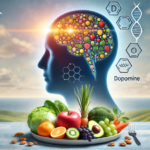Nutrition is the foundation of good health. What you eat and drink can have a significant impact on your body and its functions. Proper nutrition is essential for optimal physical and mental health, as well as disease prevention.
When it comes to nutrition, it’s not just about counting calories or following fad diets. It’s about understanding how different nutrients affect your body and making informed choices about what you eat. For example, carbohydrates are an important source of energy, while protein is essential for building and repairing tissues. Vitamins and minerals are also crucial for maintaining overall health.
By paying attention to your nutrition and making healthy choices, you can improve your energy levels, boost your immune system, and reduce your risk of chronic diseases such as heart disease, diabetes, and cancer. In this article, we will explore how nutrition affects the body and its functions, and provide practical tips for making healthy choices in your diet.
Macronutrients and Their Roles

Macronutrients are essential nutrients that provide energy and important components for the normal functioning of the body. They are required in larger quantities than micronutrients, such as vitamins and minerals. The three main macronutrients are carbohydrates, proteins, and fats. Each macronutrient plays a unique role in the body.
Carbohydrates and Energy Production
Carbohydrates are the primary source of energy for the body. They are broken down into glucose, which is used by the cells for energy production. Carbohydrates are found in a variety of foods, including fruits, vegetables, grains, and dairy products.
There are two types of carbohydrates: simple and complex. Simple carbohydrates, such as sugar, provide quick energy but can cause spikes in blood sugar levels. Complex carbohydrates, such as whole grains, provide sustained energy and are a better choice for overall health.
Proteins and Muscle Function
Proteins are essential for building and repairing tissues in the body. They are also important for the proper functioning of enzymes, hormones, and other molecules in the body. Proteins are made up of amino acids, which are the building blocks of protein.
Protein is found in a variety of foods, including meat, fish, poultry, beans, and dairy products. It is important to consume a variety of protein sources to ensure that you are getting all of the essential amino acids that your body needs.
Fats and Hormonal Balance
Fats are an important source of energy and play a key role in hormone production. They also help to insulate and protect the body’s organs. There are three types of fats: saturated, unsaturated, and trans fats.
Saturated fats, found in animal products, can increase cholesterol levels and increase the risk of heart disease. Unsaturated fats, found in nuts, seeds, and vegetable oils, can help to lower cholesterol levels and reduce the risk of heart disease. Trans fats, found in processed foods, should be avoided as they increase the risk of heart disease.
In conclusion, macronutrients are essential for the normal functioning of the body. Each macronutrient plays a unique role in the body, and it is important to consume a balanced diet that includes all three macronutrients. By doing so, you can ensure that your body is getting the energy and nutrients it needs to function properly.
Micronutrients and Health Maintenance

Micronutrients are essential nutrients that are required in small amounts for the proper functioning of the body. These nutrients include vitamins, minerals, and antioxidants. In this section, we will discuss the role of micronutrients in health maintenance.
Vitamins and Enzyme Function
Vitamins are organic compounds that are required in small amounts for various metabolic processes in the body. They play a crucial role in enzyme function, energy production, immune function, blood clotting, and many other functions. There are two types of vitamins: water-soluble and fat-soluble.
Water-soluble vitamins, such as vitamin C and the B vitamins, are not stored in the body and must be obtained from the diet on a regular basis. Fat-soluble vitamins, such as vitamins A, D, E, and K, are stored in the body and can accumulate to toxic levels if consumed in excess.
Minerals and Structural Integrity
Minerals are inorganic compounds that are required for various structural and functional roles in the body. They play a crucial role in maintaining the structural integrity of bones, teeth, and other tissues. They are also involved in various metabolic processes, such as energy production, nerve function, and muscle contraction.
There are two types of minerals: macrominerals and trace minerals. Macrominerals, such as calcium, magnesium, and potassium, are required in larger amounts, whereas trace minerals, such as iron, zinc, and selenium, are required in smaller amounts.
Antioxidants and Cellular Protection
Antioxidants are compounds that protect cells from damage caused by free radicals, which are unstable molecules that can damage cells and contribute to the development of various diseases. Antioxidants include vitamins A, C, and E, as well as minerals such as selenium and zinc.
Consuming a diet rich in antioxidants can help protect against oxidative stress and reduce the risk of chronic diseases such as cancer, heart disease, and Alzheimer’s disease.
In conclusion, consuming a diet rich in micronutrients is essential for maintaining optimal health. Vitamins, minerals, and antioxidants all play important roles in various metabolic processes and cellular functions. By consuming a balanced diet that includes a variety of fruits, vegetables, whole grains, lean proteins, and healthy fats, you can ensure that your body is getting the micronutrients it needs to function properly.
Frequently Asked Questions

What role does nutrition play in maintaining physical health?
Nutrition plays a crucial role in maintaining physical health. It provides the body with essential nutrients, such as carbohydrates, proteins, fats, vitamins, and minerals, that are needed to support bodily functions. These nutrients help to build and repair tissues, maintain proper organ function, and regulate metabolism. Without proper nutrition, the body may become more susceptible to disease, fatigue, and other health problems.
How do different nutrients contribute to bodily functions?
Different nutrients contribute to bodily functions in various ways. For example, carbohydrates provide the body with energy, while proteins help to build and repair tissues. Fats help to insulate the body and protect organs, while vitamins and minerals support various bodily processes, such as bone growth and immune function. Each nutrient has a specific role to play in maintaining overall health and wellness.
In what ways does proper nutrition impact mental well-being?
Proper nutrition can have a significant impact on mental well-being. Studies have shown that a balanced diet rich in fruits, vegetables, and whole grains can reduce the risk of depression and anxiety. Nutrients such as omega-3 fatty acids, B vitamins, and magnesium have also been found to have positive effects on mood and cognitive function.
Can you explain the relationship between nutrition and human performance?
Nutrition plays a critical role in human performance. Consuming a balanced diet that is rich in nutrients can help to improve physical endurance, strength, and agility. Proper nutrition can also enhance cognitive function, which can improve decision-making and problem-solving abilities. Conversely, poor nutrition can lead to fatigue, weakness, and decreased overall performance.
What are the potential health risks associated with poor nutrition?
Poor nutrition can lead to a variety of health problems, including obesity, diabetes, heart disease, and certain types of cancer. A diet that is high in saturated and trans fats, added sugars, and sodium can increase the risk of these and other health issues. Additionally, poor nutrition can lead to nutrient deficiencies, which can result in a weakened immune system, anemia, and other health problems.
How does a balanced diet support the body’s various systems?
A balanced diet supports the body’s various systems by providing the nutrients needed to maintain proper function. For example, a diet that is rich in calcium and vitamin D can support bone health, while a diet that is high in fiber can promote digestive health. A balanced diet can also help to regulate blood sugar levels, support cardiovascular health, and boost immune function.



